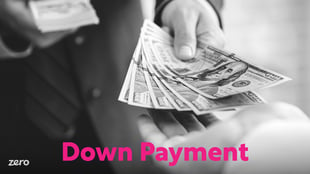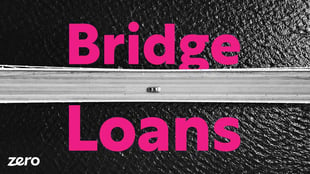8 Hidden Costs: Home Buyers' Guide to Unexpected Expenses

First time home buyers are often surprised when they learn about all of the expenses that are associated with purchasing and owning a home. After all, the purchase price and the down payment alone are just the tip of the iceberg.
Forming a solid understanding of what expenses you can expect and an estimated cost of the entire housing process can help you stay ahead financially. Becoming familiar with these expenses may also help you better understand how much money you can spend.
Plus, when you know what you can realistically afford, you can secure a loan that doesn’t become a financial burden for you later on. If you’re a first time homebuyer and you want to improve your understanding of home-related expenses, then this article is for you!
1. Closing Costs
The closing costs of a home are often considered to be hidden costs because they are more expensive than most first-home homebuyers realize. Securing a mortgage isn’t as simple as walking into a bank or lending office, paying your down payment for the loan, and closing on the house all at once.
Instead, there are numerous closing costs associated with securing the loan, and these fees add up quickly. Some of the closing costs that you can prepare for include:
- Legal fees: When purchasing a home, you should consider working with a lawyer. After all, your house will likely be the most expensive purchase you make in your life, and lawyers ensure that everything is carried out pursuant to the terms in the contract of sale. Like other service providers, lawyers charge money for their services, and their fees can range anywhere from a few hundred dollars to a few thousand dollars.
- Taxes and insurance for your escrow account: You may need to deposit enough money into escrow for the purpose of paying your taxes and your insurance provider. The amount required to be in your escrow account will differ from lender to lender, but typically, the lender will require three to twelve months of payments in escrow.
- Application fees: Most lenders will charge an application fee (ZeroMortgage does not). Although this fee isn’t too expensive, especially compared to other house-related fees, the application fee is still something worth noting.
- Recording fee: The county’s clerk will need to have a record of the deed and mortgage and in order for this to happen, a recording fee is often required by the clerk’s office at closing.
Generally speaking, closing costs are somewhere between 2% and 5% of the total purchase price of the home. In other words, if the home is $300,000, you can expect to pay anywhere from $6,000 to $15,000 in closing costs alone.
We wrote a whole blog just about fees and closing costs, read it here.
2. Maintenance & Repairs
Unfortunately, there is no way to predict how much maintenance or how many repairs a home will need, nor is it easy to figure out what those repairs may cost. Fixing a small leak in the shower will not be nearly as expensive as replacing the roof or upgrading an entire electrical system.
Despite the uncertainty of potential repairs or renovations in your home, it’s best to assume that there will be repairs that you’ll need to make. Even though you cannot know for certain how much repairs or maintenance will cost, assuming there will be maintenance costs will make sure you are prepared for them when they arise.
Common maintenance costs include:
- Servicing the boiler or furnace annually
- Servicing the hot water heater
- Servicing the central air conditioning unit
Before closing on a home, it’s wise to ask the existing owners for service records of these items. You’ll want to be sure that everything has been properly maintained over the years prior to your ownership. If many years have passed and the systems weren’t cared for, you can request that the existing owner pay for the replacement or maintenance of all systems before you purchase the home.
Having cash reserves for these expenses can help you avoid debt or poor financial decisions down the road. For instance, if you make sure to keep a few thousand dollars saved in the bank for unexpected house costs only, you can avoid having to put repairs on a credit card or take out a loan for the repairs. Although parting ways with cash is never exciting, it can save you a great deal of interest expenses in the future
Read about 8 budget-friendly DIY projects you can try today.
3. Upkeep
We discussed maintenance expenses associated with owning a home, but did you know there is also an upkeep expense? There’s a difference between maintenance costs and upkeep expenses.
Maintenance and repairs refer to the changes you must make to the home. For example, if there is a leak in the shower, you need to adjust the situation and either perform maintenance on the shower or replace the shower head altogether.
Similarly, if your roof has a leak that needs to be addressed or your hot water heater breaks, then those issues fall into the categories of maintenance and repairs. You have to fix these issues in order for your home to be a safe place to live.
Upkeep, on the other hand, refers to the tasks that you technically don’t have to do but you’ll find yourself doing anyway. For instance, every spring or summer, you might notice that you’re spending a few hundred dollars at Home Depot or Lowe’s buying flowers, shrubs, or mulch bags to keep your property nice. And you may need to buy a variety of tools to make that possible!
Remember that one of the greatest benefits of owning a home is the fact you can do anything you want to do. If you have the desire to change the paint color, add a vanity, or plant a garden, no one can hold you back. However, all of these desires will come at a cost
4. Home Inspections
The cost of home inspections typically range from $300 to $1,000. However, this is money well spent. Home inspectors exist to identify problems in the home before you make your purchase. Make sure you are working with a reputable home inspector who has a positive rating and years of experience.
They will inspect the foundation, siding, roof, and windows of your home. Plus, they will ensure that all of the toilets flush properly. They’ll also prevent unwanted situations like leaks, gutters, or poor-quality hardwood floors and carpets. In the best case scenario, there will be no issues with the home, but they might find something worth negotiating with the seller, which will save you money overall.
If you’re not a roofer, you may have never picked up on the roof being in such bad condition. That’s why hiring a professional is a wise idea. They can pick up on issues that you might not recognize on your own so that a year down the road, you don’t end up having to deal with an unexpected expense to fix the roof.
5. Private Mortgage Insurance
Before going over this expense, we should take a closer look at the definition of private mortgage insurance. So, what is private mortgage insurance? Simply put, this is a type of insurance that you may have to pay to your mortgage provider.
It serves as a protective measure for the lender in case you end up defaulting on your loan. It’s important to recognize that private mortgage insurance does not protect you. Instead, it protects your lender.
However, private mortgage insurance might be avoidable, but it depends on the type of loan that you secure and how much money you put down. For example, if you’re financing your home via an FHA mortgage and you put down less than 20% in the form of a down payment, you’ll be required to pay private mortgage insurance no matter what.
Generally speaking, a PMI often costs somewhere around 1% or 2% of your initial loan value. Depending on the mortgage you’re looking to secure, your PMI payments will come to an end once you reach a point of having 20% equity. Nonetheless, this insurance is a pricey addition to the already-costly home buying process.
6. Utilities
Utilities are an expense that renters are already familiar with, making utilities something that is not only pertinent to homeowners. However, when you take the time to factor in how much money you can comfortably spend per month on a mortgage, be sure to factor in the utility expenses as well.
With that said, homeowners look at utilities through a different lens than renters. For instance, if the home does not have great insulation in the attic, homeowners can reinsulate the attic to retain more heat in the winter and more cool air in the summer. This can cause utility expenses to drop, but it requires money upfront because it costs money to properly insulate your home.
7. Property Taxes
Property taxes refer to the money you are required to put towards your town, your city, or your county. This money pays to maintain the town, including the upkeep of roads, the public school system, community centers, and town employees. Depending on where you live, property taxes can be either expensive or affordable. This is known as the town's mill rate.
Property tax is often rolled into your monthly mortgage. Either that or you’ll have to pay the town once or twice per year. If property taxes are not already a part of your mortgage, make sure you set money aside each month so that you are not hit with unexpected expenses throughout the year.
8. Survey and Appraisal Fees
Many lenders will require that you have your land surveyed and your property appraised. In most cases, survey and appraisal fees will typically cost you a few hundred dollars.
Simply put, the survey provides the lender with a clear understanding of where the property lines begin and end. An appraisal is used to calculate the value of the home.
The appraised value of a home does not always align with what the property is being sold for. As an example, if a home is appraised for $350,000 yet being sold by the seller for $325,000, then the buyer is in luck.
Alternatively, let’s imagine a situation where a house is appraised for $325,000 and the seller is looking to sell the home for $25,000 more, resulting in a selling price of $350,000. In this situation, the bank may not provide lending for $350,000.
So, if the buyer was dead set on owning this home, then that $25,000 difference would need to come from their own pocket and they must pay that difference or get the seller to lower their asking price. Nonetheless, these survey and appraisal fees are often considered to be unexpected expenses because first-time homebuyers have never needed to consider them in the past.
What to Expect When Buying a House in 2022
A lot has changed as a result of COVID-19, and the housing market is part of that change. If you’re buying a house in 2022, do yourself a favor by keeping these advantages and disadvantages in mind.
Current Market Advantages for Home Buyers
Some of the market advantages for homebuyers include the following:
- Interest rates are low! The money that you’ll pay in interest over the course of the loan is substantial. Generally speaking, the lower the rate, the better!
- Sellers are looking to sell quickly, which can make the transactions and overall process move much faster.
Current Market Disadvantages for Home Buyers
There are also disadvantages worth considering, some of which include:
- With a surplus of people leaving cities in search of the suburbs, supply is limited and demand is high. This is forcing home prices to rise at a rapid rate.
- The rapid home price surge has caused many homes to fail to appraise out, meaning the seller is looking to get more for the home than it was originally appraised for. This presents challenges when it comes to financing which creates a lot of uncertainty for interested homebuyers.
- Due to the high demand of people looking to purchase a home, underwriting is much stricter. Banks reserve the right to deny lending, and banks are also much more selective with who they will issue a loan to.
A Pre-approval Letter is Crucial
A pre-approval lender is absolutely critical in today’s market, and differs from pre-qualification. A pre-approval letter informs you of how much money a lender is willing to offer you in the form of a mortgage loan.
With a pre-approval letter, you and your realtor can then look at homes that fit within your pre-approved budget. Considering how busy real estate agents are at the moment, they are often not working with people if they are not pre-approved, so a pre-approval letter is highly recommended.
Our Mortgage Learning Center features blogs on a wide range of mortgage and refinancing topics.
A Lot to Consider
Despite the various unexpected expenses that you need to consider when buying and owning a house, home ownership is still a major part of the American dream, and for good reason. Having a place to call your own where you can establish roots is such a gratifying accomplishment!
If you plan on purchasing a home, make sure you consider all of the unexpected expenses that we’ve discussed above. This will help you be more prepared for homeownership, which will make homeownership that much more enjoyable and fulfilling!
Ready to Buy Your Dream Home?
This page last updated: October 6, 2022
Read more on this topic below.

When you buy a house and start making mortgage payments, your payment consists of four different components, known...

If you have gone through the pre-approval process but need to take a deeper dive into how much house to buy,...

The vast majority of mortgage loans require you to put down a certain percentage of the selling price upfront....

Whether you’re a first-time buyer or you’ve purchased a home before, you’ve likely heard of a homeowner’s association....

There’s a lot of expenses to keep in mind when you’re thinking about buying a home. Between the price of the home, property taxes, your mortgage...

Conventional loans are mortgages offered by private lenders, banks, and institutions that are not backed by the government. Unlike FHA, USDA,...

Some homebuyers refuse to purchase a property if it is part of a property owner association. On the...

Research indicates that 58% of homeowners in HOA communities and single-family homes pay an average monthly fee...

Private mortgage insurance is something millions of homeowners pay for each year. However, this type of insurance does not protect

When you first set out to buy a home, it can feel like you’re taking an exam you forgot to study for. You have to make quick...

When looking to refinance or buy a house, the pre-qualified vs pre-approved mortgage debate can be...

It’s likely that your mortgage loan will be the largest loan you have during your lifetime. Mortgages are not a one size...

For many people, owning a home is part of the American dream. To make this dream a reality, most people will take out a...

Whenever you’re looking to buy a house, you’ll quickly realize there are a lot of fees associated with obtaining a mortgage....

A bridge loan is a short-term loan a borrower may use while a more long-term financing contract is finalized. Bridge...

A loan estimate is crucial to obtain when looking for a loan. This estimate not only gives you the details of a mortgage but also compares offers...

There are many moving parts and various people you’ll deal with throughout the homebuying process....

If you’re looking to buy a house, and do not have a mountain of cash saved up, you’ll need to consider getting a mortgage to help you finance this...

If you find a property that you’re highly interested in buying but are concerned that the seller might choose...

Buying a home? You’ll likely need to get it appraised before you receive the clear to close. If you’re wondering...

If you’re an active service member, a veteran, or the surviving spouse of a veteran, and you want to ...

There’s no doubt, COVID-19 changed the world in countless ways and took us all by surprise. From an...

Whenever you are borrowing money, whether it’s for a new mortgage, a refinance, credit card, or car loan, you’ll hear...

If you’re new to buying a home, you probably have quickly realized the overwhelming amount of options there...

If you’ve already gone through the lengthy process of writing offers, securing financing, and arranging inspections for your...

One of the most important steps to buying a home is deciding on a mortgage loan and deciding on a loan involves settling on a good...

Purchasing real estate is not as simple as finding the right home, submitting an offer, and signing the closing paperwork; many...
